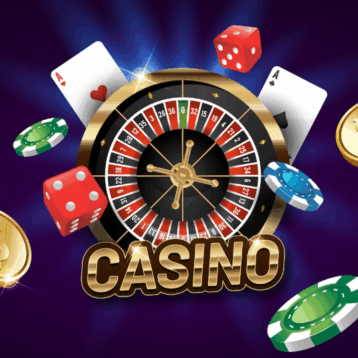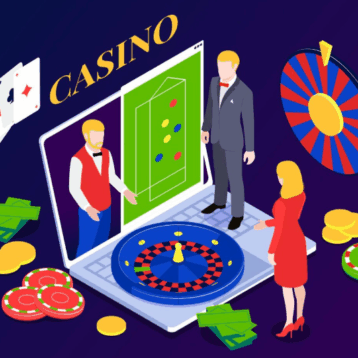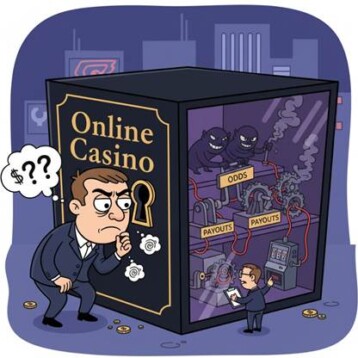Poker has evolved significantly over the years, from its humble beginnings to its presence on virtual platforms. In fact, nowadays, many people play poker online as opposed to playing the game in traditional casinos, meaning that they aren’t aware about poker’s long and rich history with moving online. With this in mind, let’s explore the evolution of online poker.
Firstly, the traditional form of poker goes back many years to the 19th century when it became popular in the United States. As the game spread, it became common to play poker in venues such as saloons. When the first brick-and-mortar casinos were introduced, poker would become one of the most played table games in these land-based venues, with people coming far and wide to try it out. Nowadays, physical casino venues are dwindling in popularity as people can play a wide range of poker games from the comfort of their own home on their mobile device without having to travel long distances.

Although it appears that online is poker is a recent invention, it has been several years since poker popped up on virtual sites. In fact, in 1997, the first online card-rooms appeared, and on January 1st and in 1998 the first real money online poker history was dealt. At this time, there weren’t many rules for online poker, and the industry was mostly unregulated.
This meant that a lot of sites ran without much oversight in the early days. The graphics were also very basic meaning that the poker experience wasn’t as immersive as it is today. At this time, it also wasn’t possible to play poker from your mobile phone which meant that people had to resort to computers to access the game.

In the 2000s, internet speeds became faster and people began to get access to higher quality computers, meaning online platforms were able to offer more sophisticated games with better graphics and a more advanced playing experience. This propelled the game of poker to new heights as more people became exposed to the game. However, there were still some outstanding issues thwarting poker’s rise such as slow loading times and bugs on some sites. Many of theses also had a limited catalogue of games, meaning that players didn’t have much choice when it came to poker variations like Texas Hold’em.
A few years later in 2003, the game of poker experienced a boom. This was largely because of televised poker events like the World Series of Poker (WSOP) and the hole-card camera that allowed viewers to see players’ hands. People who watched the tournaments on TV became inspired by professional player’s dedication to the game and wanted to walk in their footsteps by playing it themselves. In 2003, it became clear that the tides were changing in terms of poker’s popularity as some poker sites became more transparent about their operations and began to promise better security and fairness for players.
Today, online poker is part of mainstream society with millions of people playing the game. This is mainly due to the high-quality graphics, gaming options and the introduction of mobile apps which makes it possible to play poker with one simple click. Players can choose between a limitless catalogue of poker variations such as Texas Hold’em, Omaha, Seven Card Stud and Five Card Draw as well as themed poker games such as seasonal themed poker games or those with jackpots and special features. In many countries all over the world, there are more regulations to protect players and ensure fair play. This has served to build trust between players and casino operators, encouraging many visitors to return.

Additionally, advancing technology has also popularised poker with casino providers already implementing AI, AR, VR and blockchain technology onto their platforms. Artificial intelligence has already been successful in personalising the poker experience by offering customised game suggestions and protecting players against scams by flagging up suspicious behaviour that can be solved promptly. Augmented reality and virtual reality has been beneficial in making poker players feel as though they are in a real life casino by making their poker sessions more realistic with the presence of live dealers and chat features. Of course, blockchain technology and the inclusion of cryptocurrency has also revolutionised the way people play poker, making sites more safe and secure and giving players even more choices and anonymity with their payment methods.
Ultimately, it’s clear to see that the way people play online poker today is very different to even a few years ago. From its appearance on virtual platforms in the 1990s to its prevalence at modern online casinos, poker enthusiasts are spoilt for choice with many variants to choose from. With exciting technological developments to look forward to, it’s likely that the online poker experience will be even more diverse in the next few years.










